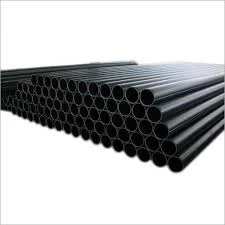Dec . 03, 2024 22:55 Back to list
High Density Polyethylene Pipe for Durable and Reliable Fluid Transport Solutions
Understanding Solid HDPE Pipes A Comprehensive Overview
High-Density Polyethylene (HDPE) pipes have become a popular choice in various industries due to their exceptional properties and versatile applications. Among the different types of HDPE pipes, solid HDPE pipes are particularly noteworthy. These pipes are characterized by their uniform cross-section and are widely used in water supply systems, drainage solutions, and gas transportation.
What is Solid HDPE Pipe?
Solid HDPE pipes are made from high-density polyethylene, a thermoplastic polymer known for its strength, durability, and resistance to chemical corrosion. Unlike other pipe types that may have a hollow or structured wall, solid HDPE pipes maintain a consistent thickness throughout. This design provides enhanced pressure resistance and makes them suitable for various demanding applications.
Key Features of Solid HDPE Pipes
1. Durability Solid HDPE pipes are resilient and can withstand harsh environmental conditions. They do not rust, corrode, or show significant wear over time, making them a long-lasting solution for both buried and above-ground installations.
2. Chemical Resistance One of the standout characteristics of HDPE is its resistance to a wide range of chemicals, including acids, bases, and solvents. This quality makes solid HDPE pipes an ideal choice for transporting fluids that could otherwise deteriorate other materials.
3. Lightweight and Easy to Handle Solid HDPE pipes are significantly lighter than traditional materials like concrete or metal. This attribute facilitates easier transportation, handling, and installation, which can lead to reduced labor costs and project timelines.
4. Cost-Effective Although the initial investment in solid HDPE pipes may be comparable to other piping materials, their longevity and minimal maintenance requirements often result in lower overall costs in the long run.
solid hdpe pipe

5. Fusion Joining Solid HDPE pipes can be joined using heat fusion techniques, creating a seamless connection that maintains the integrity and strength of the pipeline. This method enhances the system's reliability by eliminating potential leak points.
Applications of Solid HDPE Pipes
The versatility of solid HDPE pipes allows for a wide range of applications across various sectors
- Water Supply Solid HDPE pipes are extensively used in municipal water supply systems due to their ability to efficiently transport potable water without leaching harmful substances.
- Agricultural Irrigation In agriculture, these pipes are used for irrigation systems, helping to distribute water evenly across fields with minimal losses.
- Wastewater Management In wastewater and drainage applications, solid HDPE pipes help manage sewage and stormwater effectively, ensuring proper flow and preventing blockages.
- Gas Transportation Solid HDPE pipes are also utilized in gas distribution networks, where their chemical resistance properties ensure safe and efficient transport of natural gas.
Conclusion
In summary, solid HDPE pipes offer an array of benefits that make them a prime choice for various piping applications. Their durability, chemical resistance, lightweight nature, and cost-effectiveness position them as a superior alternative to traditional materials. Whether in water supply systems, agricultural settings, or gas distribution networks, solid HDPE pipes continue to prove their worth in modern infrastructure. As the demand for reliable and sustainable solutions grows, solid HDPE pipes are poised to play a significant role in meeting the needs of various industries worldwide. Embracing these modern materials can pave the way for more efficient, long-lasting, and environmentally friendly projects.
-
High-Quality PPR Pipes and Fittings Durable ERA PPR & PVC PPR Solutions
NewsJul.08,2025
-
Black HDPE Cutting Board - Durable, Non-Porous & Food Safe HDPE Plastic Cutting Board
NewsJul.08,2025
-
High-Quality CPVC Panel Durable HDPE & PVC Panels Supplier
NewsJul.08,2025
-
Double PE Welding Rod Supplier - High Strength, Durable & Versatile Welding Solutions
NewsJul.07,2025
-
High-Quality PVC-O Pipe Supplier Durable 75mm PVC Pipe & Connections Leading PVC Pipe Company
NewsJul.07,2025
-
HDPE Drainage Pipe Supplier – Durable & Corrosion-Resistant Solutions
NewsJul.06,2025

